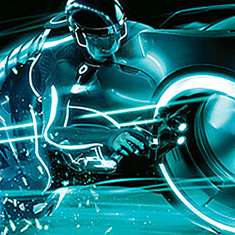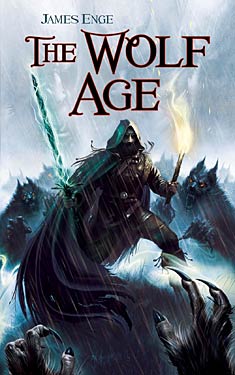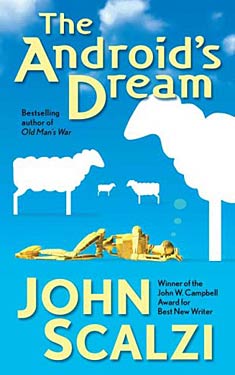TRON: Legacy
[This review was originally published on my blog The Photo Play.]
 “Change the scheme! Alter the mood!”
“Change the scheme! Alter the mood!”
The plot of TRON: Legacy is simple enough for a popular audience to quickly grasp, yet rife with complex implications if examined hard enough. Seven years after Kevin Flynn’s (Jeff Bridges) original adventure (helpfully recapitulated in a bedtime story Flynn tells his young son Sam) he makes a trip to his office at the arcade and simply vanishes without a trace. Some twenty years later Sam (Garrett Hedlund)–now something of a loner rebel anarchist, though still majority shareholder in his father’s company–is told of a page that came from his father’s long-closed office. A few steps later, and Sam is being digitized into his father’s late cyberspace creation The Grid, which is every bit as dangerous as the original film’s ENCOM mainframe. There he meets his father, who oddly hasn’t aged a day since he disappeared…
There’s something about the original TRON that has ingrained itself into our popular culture, that has become part and parcel with the ideas of cyberpunk, virtual space and artificial intelligence. The images of computer programs that appear human but with circuit-like clothing, of light cycles that battle much like the old game Snake, of electronic disci thrown with deadly intent, of sentry ships shaped like upside-down “U”s: all of these have become iconic images for the popular imagination whenever it thinks about groundbreaking computer technology. But it has been twenty-eight years since the original TRON hit theatres, and a lot has happened since then, not the least of which are the Matrix franchise (which updated the cyberpunk image to be almost entirely punk) and the real-world creation of the Internet.
TRON: Legacy’s response to the Matrix films is obvious enough on the surface. The sequel’s cyber world is darker, grungier, hipper, and more thickly populated with persons who know martial arts. The original film’s body suits of complex circuitry have been replaced with simpler circuit designs reminiscent of comic book creator Jack Kirby’s. The landscape–and a real landscape this is, not just a computer-rendered plane that extends to infinity–looks much like that of The Matrix’s post-apocalyptic scorched earth, complete with dark and boiling clouds. There is also some philosophical discussion about the nature of reality as it relates to virtual reality, but it is closer to that of the original film and less like the increasingly pedanticMatrix sequels. Legacy also manages to be more comfortable with itself as an action movie than was its predecessor. In short, the sequel has learned from its peers, but has managed to avoid many of their mistakes.
Legacy has a harder time adjusting to real-world developments in technology like the Internet. While the idea of program avatars that look like their “users” was a fairly original idea in 1982, in our age of instant messaging and World of Warcraft it loses much of its power.Legacy adjusts the idea somewhat by downplaying the visual similarities between program and user–the program Tron looks like the young Alan Bradley (Bruce Boxleitner), but his face only appears on screen for less than a minute–while ramping up the interplay between the elder Flynn and his doppelgänger program Clu (“Codified Likeness Utility”) who rebels against his creator. This is a clever way of retaining the avatar system from the original film while updating it for the modern age.
It is not so clever in explaining the scope of The Grid and its relation to the Internet. The ENCOM mainframe which was the playing field of the original TRON was a network capable of connecting to outside networks, at one point even attempting to hack the Pentagon. The Grid, however, seems to have been created as an intentionally closed system, which is strangely at odds with the way the pre-Legacy Flynn is shown talking about free and open software in a montage of public speaking clips. Flynn and Tron moved from the mainframe to The Grid in the hopes of creating a perfect computerized world, to which end he created Clu as an assistant. The filmmakers seem to want us to believe that The Grid is a cyberspace superior to any in the real world, one capable even of spontaneously creating artificial life and intelligence, the ISOs, which hold the possibility of curing many ills in the real world: “a digital frontier to reshape the human condition.” Yet if even the ENCOM mainframe could unintentionally bestow intelligence to its programs, what is so special about the ISOs, and why shouldn’t we expect the same phenomenon to have occurred on a global scale throughout the Internet? If Legacy is guilty of any fundamental error, it is in thinking too small. One hopes they keep this in mind when planning for the next sequel.
While Legacy is a mostly sleek and efficient machine, it does get clunky in parts. The philosophical assertions scattered throughout are never explored as thoroughly as they could be, and are often interrupted by action sequences. The action itself is very well done, influenced as it is by The Matrix and a hundred other genre movies that have made their mark over the last few decades. Extending the 2D light cycle duels into the 3D world of aeronautic dogfighting is a good nod to the expanding playing fields of modern video games. One wonders at times about Clu’s motivation and his ultimate game plan, which is just as apocalyptic as that of the Master Control Program in TRON, and perhaps just as absurd. Still, Legacy is a fun romp through cyberspace that is very optimistic about developing technology in an era when technology threatens to take over too many aspects of our lives. Flynn has a utopian belief in the potential of free and uncontrolled technology and a less pleasant perspective on technology that is overly-controlled or -controlling. One supposes that this is an indictment of the supposedly restrictive practices of company-owned software in favor of an open source if not pro-piracy philosophy. (What must the Disney film studio think about that?) Despite all its flaws and inconsistencies, Legacy is proof that there is still potential in the TRON franchise and that it has something worth saying, even if its creators haven’t yet sorted out what that is.
Award Winning Books by Women Authors
 We’ve just added a new book list to WWEnd: Award Winning Books by Women Authors.
We’ve just added a new book list to WWEnd: Award Winning Books by Women Authors.
This list contains all the award winning books by women authors for the 10 awards we cover on Worlds Without End: Hugo, Nebula, BSFA, Locus SF, Locus Fantasy, John W. Campbell, BFS, World Fantasy, Philip K. Dick and Arthur C. Clarke. (You can see the complete list of winners for all 10 awards here.)
Novels written by women account for only 65 of the 305 award winning novels across all 10 awards. That’s only 21.3% since the first Hugo award was given in 1953. Seems a bit low to me and, no doubt, many others out there. In any case, what they lack for in quantity they make up for in quality.
So how many have you read from this list? Which ones would you recommend? For me, you have to read The Sparrow by Mary Doria Russell. One of my all-time favorites.
Pyr Publishes its 100th Title
 From the official press release:
From the official press release:
In March of this year, Pyr, the science fiction and fantasy imprint of Prometheus Books, celebrated its fifth anniversary. In November, Pyr reached another milestone: publishing its one-hundredth title, The Wolf Age, by James Enge.
The Wolf Age is the third novel to feature Enge’s character Morlock Ambrosius, a wandering swordsman, an exile, and a drunk. Blood of Ambrose, Enge’s first Morlock novel, was on the Locus Recommended Reading list and a World Fantasy Award nominee for Best Novel.…
In honor of this burgeoning Morlock fan base, and to commemorate The Wolf Age’s status as Pyr’s one-hundredth title, Pyr is issuing a free, exclusive, ePub novelette called “Travellers’ Rest.” Featuring a cover by artist Chuck Lukacs, “Travellers’ Rest” is an 8,500 word original novelette, written for Pyr, which takes place before the events of Blood of Ambrose. It is available on the Pyr website, http://www.pyrsf.com, as a free download in ePub format and will also be available via Kindle.
Check out the full press release on Pyr-o-mania and get your free novelette! Congrats to Pyr for a rockin’ five years.
The Android’s Dream: A Review
 John Scalzi has become an author that I look forward to reading in the last few years. Up to this point, I’ve only read his Old Man’s War series of novels, starting with Old Man’s War, so The Android’s Dream was my first foray into his unrelated novels.
John Scalzi has become an author that I look forward to reading in the last few years. Up to this point, I’ve only read his Old Man’s War series of novels, starting with Old Man’s War, so The Android’s Dream was my first foray into his unrelated novels.
The title refers to a genetically modified and very rare breed of sheep with electric-blue wool. This particular breed is needed for a coronation ceremony on the planet Nidu. Harry Creek, war hero and diplomat who specializes in delivering bad news to the various sentient species living here on Earth, has been tasked by his government to find an Android’s Dream sheep before it’s too late for the ceremony, which could throw Earth into war with the Nidu, whose alliance is essential yet tenuous. His search takes him to a mall pet shop specializing in genetically unmodified pets, and a meeting with the shop’s owner, Robin Baker. But Harry’s not the only person trying to find the rare sheep, including many who wish for the ceremony to fail.
The book is very fast paced, jumping from point of view to point of view, watching events unfold from different angles. The view point of some of the aliens is interesting, as Scalzi tries to show things from their non-human perspective. He pulls this off with modest success, as the view points are different, but in a Star Trek kind of way. There are the back-stabbers, the warriors, the strategists, etc., in other words, different angles of the human condition. This is not a negative, I’m merely pointing out that the view from an alien has been done better before, as with Michael Valentine Smith in Heinlein’s Stranger in a Strange Land, or the visiting alien in the John Carpenter movie Starman. This brings up a good subject. Best alien point-of-view novels and movies?
Harry Creek is an interesting character with some depth, and he helps keep you the reader invested in the story, and its outcome. He’s a man with a history that comes out a little at a time, and Scalzi writes him to be modest and noble, even in compromising situations. You root for him as he tries to keep one step ahead of those that wish him and Earth harm.
This was a fun story, and I liked it enough that I’m now placing other novels from John Scalzi on my reading list, such as Agent to the Stars.
I recommend The Android’s Dream very highly, and will give it a 9 out of 10 for its quick-paced adventure.



















 Full Details
Full Details

